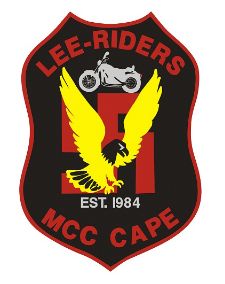- within International Law, Environment and Finance and Banking topic(s)
In this article we discuss a recent South African court judgment, Lee Riders Motorcycle Club v Nigel Jacobs and the Registrar of Trade Marks. The case deals with a falling out amongst bikers about trade marks.
Born to be wild
In South Africa, there is a bikers' club called Lee Riders Motorcycle Club ("Lee Riders"). Lee Riders was established in 1984 in order to, 'advance the interests of its members, all of whom are motorcycle enthusiasts'. Lee Riders is not a corporate entity but a voluntary association.

*Image credit taken from trade mark register page
Get your motor running
Lee Riders claimed that it had used the trade mark Lee Riders since 1984, as well as a device mark (logo) since 2000 and that it is the common law owner of these trade marks. It claimed that the trade marks are used in the areas of sporting and cultural activities.
Head out on the highway
Nigel Jacobs was a member of Lee Riders, until 2015 when he resigned. On 13 May 2015, Nigel Jacobs filed an application to register the trade mark - Lee Riders Logo. The application was advertised and did not encounter opposition.
Looking for adventure
For reasons that are somewhat obscure (including Covid) the matter was transferred from the Registry to the High Court, where Lee Riders sought an order granting an extension of the period to oppose the trade mark application, as well as an order that the Registrar of Trade Marks be directed to refuse the trade mark application or withdraw the acceptance.
Whatever comes our way
Judges are generally born to be mild, not wild. Judge Swanepoel (Gauteng Division) accordingly made these sober observations:
- Lee Riders was established in 1984;
- Its constitution was adopted in 1990 (and has been updated since);
- It has used the trade mark Lee Riders since 1984 and the device mark since 2000.
The judge said that the former member, Nigel Jacobs, did not deny that the mark he was seeking to register was for all intents identical to the original mark of Lee Riders. Jacobs also did not deny that Lee Riders had established a reputation in the mark that he was now trying to register.
The judge made the following notable findings:
The test for proprietorship of a mark
'First, he must establish a goodwill or reputation attached to the goods or services which he supplies in the mind of the purchasing public by association with the identifying get-up... such that the get-up is recognized by the public as distinctive specifically of the plaintiff's good or services.' – see Reckitt & Colman Products Ltd v Borden Inc and Others
Reputation
'There is no real attack to the proposition that the applicant has established a reputation in respect of the word and device marks, that its name and logo are identified with it, and that it has been so for a number of years....The club was established in 1984 by approximately 10 members... the fact is that the name was adopted and the logo was designed for use by the applicant.'
Legal standing
'The first respondent (Nigel Jacobs) contends that the members who left the club are the proprietors of the trade marks. That cannot be correct. There is no dispute that the applicant still exists as a voluntary association. The association has separate legal standing from its members. It has at all times been the proprietor of the trade mark and there can be no basis in law whereby disgruntled members who, having left the club, can claim proprietorship in the trade marks.'
No claim to proprietorship
'It is, in any event, not disputed that the first respondent (Nigel Jacobs) ...has no claim to proprietorship in the trade marks.'
Deception and confusion
'The applicant's reliance of Section 10(12) and 10(13) of the Act is, in my view, correct. It provides that a trade mark that is inherently deceptive, or where its use may be likely to deceive or cause confusion, may not be registered. There can be no doubt that the use of the same name and logo by two different clubs in the same recreational field would deceive and cause confusion.'
No undue delays
'The applicant's opposition to the application was not unduly delayed. It sought and was granted an extension to 30 April 2020, which was a period at the height of the Covid 19 pandemic, when most of the world's commerce and administration was shut down. The application for a further extension came four days after the last day for opposition, and seems to me to have been justified.'
The upshot
The Registrar of Trade Marks was directed to refuse the application by Jacobs for Lee Riders Logo in class 41 in terms of various sections of the Trade Marks Act. This judgment delivers a clear message – don't steal someone else's trade mark, devise your own!
*Reviewed by Gaelyn Scott, head of ENS' Intellectual Property practice
The content of this article is intended to provide a general guide to the subject matter. Specialist advice should be sought about your specific circumstances.


